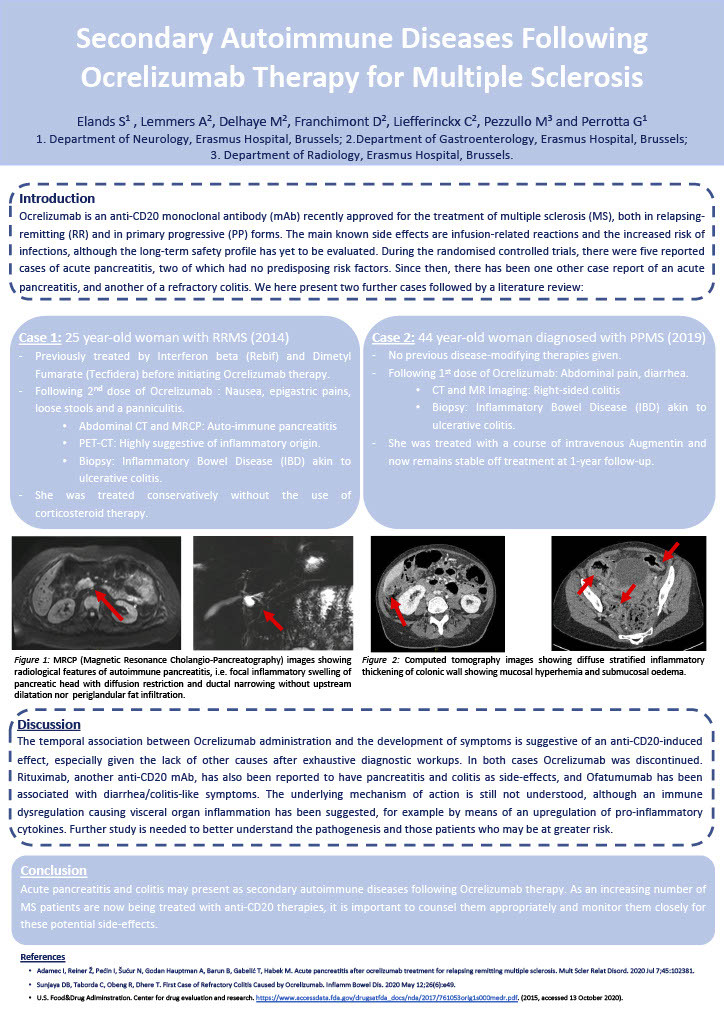Secondary Autoimmune Diseases following Ocrelizumab Therapy for Multiple Sclerosis
Abstract
Ocrelizumab is an anti-CD20 monoclonal antibody recently approved for the treatment of multiple sclerosis (MS), both in relapsing-remitting and in primary progressive forms. The main known sideeffects are infusion-related reactions and the increased risk of infections, although the long-term safety profile has yet to be evaluated. During the randomised controlled trials, there were five reported cases of acute pancreatitis, two of which had no predisposing risk factors. Since then, there has been one other case report of an acute pancreatitis, and another of a refractory colitis following Ocrelizumab therapy.
We here present two further cases followed by a literature review:
A 25-year-old woman diagnosed with relapsing remitting multiple sclerosis for five years presented with epigastric pains and a nodular erythema six weeks following her second dose of Ocrelizumab.
Abdominal CT and MRCP confirmed an acute pancreatitis, with PET-CT highly suggestive of an inflammatory origin. Biopsy results taken during ileocolonoscopy also revealed an ulcerative colitis.
She was treated conservatively without the use of corticosteroid therapy.
A 44-year-old woman diagnosed with primary progressive multiple sclerosis for one year presented with abdominal pain and diarrhoea shortly after her first dose of Ocrelizumab. Imaging revealed a right-sided colitis treated initially with a course of intravenous Augmentin. Biopsy results were highly suggestive of an inflammatory origin. She remains stable off treatment at 1-year follow-up.
The temporal association between Ocrelizumab administration and the development of symptoms is suggestive of an anti-CD20-induced effect, especially given the lack of other causes after exhaustive diagnostic workups. In both cases Ocrelizumab was discontinued. The pathogenesis is still not understood, although an immune dysregulation causing visceral organ inflammation has been suggested. Further study and caution are therefore warranted with regards to these rarer side-effects.

